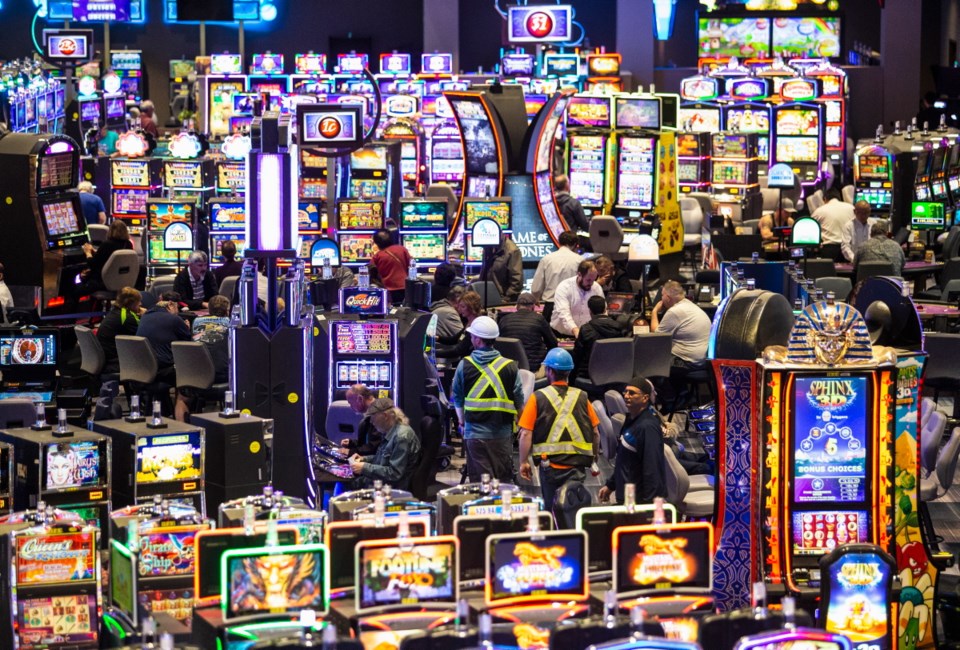There’s more to bells and whistles than “just bells and whistles” when it comes to gambling behaviours, UBC researchers have found.
Far from harmless background stimuli, the lights and sounds from casino games are actually altering decision-making and encouraging risky gambling behaviour, says a study published this week in JNeurosci, the journal for the Society for Neuroscience.
“They’re not just harmless little tunes just playing in the background, to encourage you to go over [to investigate a machine]. Our research suggests instead they’re designed to enhance poor decision-making — risky decision-making — that could end up with you losing more money,” said Catharine Winstanley, UBC professor of psychology and investigator at the Djavad Mowafaghian Centre for Brain Health.
“Whether or not the casinos know this, we can’t comment. But I’m pretty sure they track which machines are the most profitable,” she said.
Winstanley conducted the research with post-doctoral research fellow Mariya Cherkasova, following up on earlier work that found rats were more willing to take risks when their food rewards were accompanied by flashing lights and jingles.
To determine if the same would hold true with humans, the researchers had 100 adults play laboratory gambling games that featured sensory feedback modelled after sounds and lights used to signal winning in real slot machines.
They found money imagery and slot machine sounds can directly influence an individual’s decisions.
Using eye-tracker technology, the researchers were able to see that people were paying less attention to information about the odds of winning on a particular gamble when money imagery and casino jingles accompanied the wins.
“We also noted that participants showed greater pupil dilation, suggesting that individuals were more aroused or engaged when winning outcomes were paired with sensory cues,” she said.
Without the sensory cues, participants demonstrated more restraint in their decision-making, they found.
They say the findings might help provide context for why it can be hard for those with a tendency toward gambling addiction to resist the lure of the casino.
It would be premature to suggest regulation is needed, but it’s not too early to start thinking in that direction, Winstanley said.
Quite remarkable results came from the eye-tracking data, which gave an indirect measure of how excited people were to play the game, she said.
The researchers want now to try to determine if those who develop problems with gambling are more vulnerable to visual and audio cues.
“I think if we do see that, that will be even more call for regulation,” she said.
The data quite dramatically showed that the game players were more physiologically aroused when stimuli were present.
“So what are these cues doing and how are they affecting our brain to make the game seem more engaging [while] at the same time biasing us toward risk and uncertainty? It just seems very insidious. Ominous,” she said.
Winstanley noted there’s absolutely nothing stopping electronic games manufacturers “from putting all kinds of sensory stimulation into their games right now.”
The research has prompted her to mute all the alert or notification functions on her personal electronic devices.
“So I no longer get any sounds or lights when messages come in because I think the app designers are using some of the same approaches as those that design gambling games. And I think there’s a bit of a concern in that direction as well,” she said.
Asked for comment, B.C. Lottery Corp. issued a statement saying they and the province are committed to responsible gaming.
“As part of our ongoing efforts, BCLC and B.C.’s Gaming Policy and Enforcement Branch have engaged Gambling Research Exchange Ontario to conduct research to determine the impacts of reducing or minimizing higher risk features of electronic gaming machines,” the statement said.
A spokesperson for Great Canadian Gaming Corp. which operates the casino in View Royal referred a request for comment to the BCLC.



